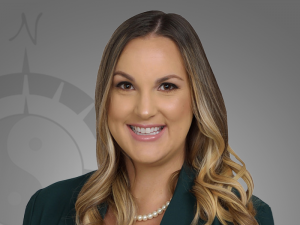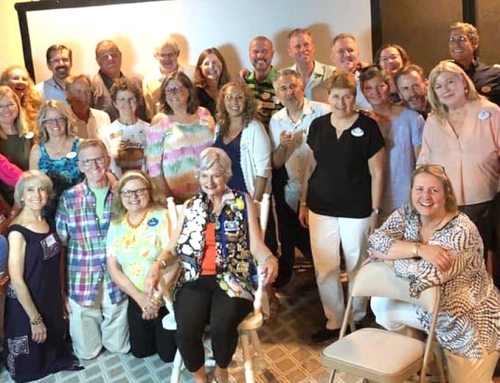 A post by ILS Facilitator, Bailey Figueroa
A post by ILS Facilitator, Bailey Figueroa
My mother in law was recently admitted to Sutter Medical Center in Sacramento, CA for scheduled open heart surgery to replace a blocked aortic valve.
She, my husband, and I were all filled with anxiety and concern, but to our great relief, the team at Sutter Medical Center did a phenomenal job at “humanizing the patient experience” and in doing so, they helped reduce our anxiety and gave us all greater peace of mind.
I was really impressed with how well they communicated to my mother in law and to my husband and me. From the moment we walked into the hospital until the moment we spoke to the physician after her surgery, the frequency and clarity with which the care team communicated with my mother in law and with my husband and I was exceptional. It was the thing that really stood out for me the most from this entire experience. At ILS, we like to say that in the absence of good communication, chaos fills the void. This is so true, whether you’re the patient or the loved one of a patient. I’m happy to say there was no room for chaos to fill the void in this instance, the team kept us all in the loop.
The morning of the surgery, we entered the medical center and were greeted by a friendly security officer who provided us visitor nametags. Next, we were escorted to the patient registration area where the process was very concise and clear. Thanks to the excellent map provided by the registration representative, we easily found the surgery department and settled in to wait for my mother in law to be called for pre-op.
Our check-in process was seamless because the potential “pain points” (check-in, wayfinding) were handled proactively. They anticipated patient and family needs and did their best to eliminate those things that could cause frustration and increased anxiety. I have no doubt our experience would have been completely different had the security guard not greeted us when we arrived, or if there was no map and we had to navigate the halls of the surgical center on our own, or if the registration process was confusing and tedious.
When my mother in law was taken back for pre-op, the nurse made sure to tell us they would get her prepped and call us back in about an hour to speak with the anesthesiologist and the surgeon before they wheeled her back for surgery. Sure enough, approximately an hour later the nurse brought my husband and me back to her bedside to speak with the physicians and give our love to our mother. Before we returned to the waiting room, we were told that a coordinator would come out to the waiting room to give us an update every two hours during the surgery.
The communication from the care team before the surgery gave us the reassurance and peace of mind to send our mother off to surgery confident in the staff, the physicians AND the process. We knew they meant what they said and they would follow through on their promises.
For a worried family and nervous patient, this kind of comfort and peace of mind is so valuable.
As they promised, two hours into her surgery we were met by a coordinator in the waiting area where she updated us on the surgery and the additional work the doctor had to complete, which we were not anticipating and which would lengthen the surgery time. Had the coordinator not given us that update, I’m sure the panic would have set in as the time passed as we waited. After the surgery was complete, the coordinator escorted us to a private consult room where the physician met us and went over in detail how the surgery went, how our mother was doing, and when we would be able to see her in recovery.
Once my mother in law was moved from the Cardiac ICU floor to the Cardiac PCU and we were headed to her room to visit her, I noticed something on the nurse’s whiteboard. It was something I’d never seen at other hospitals I’ve visited.
 In addition to the standard information on the nurse board (patient name, date, diet, nurse, pain level, plan etc.) on the top of the board there was a section labeled: Something We Should Know About You. It could be anything the patient feels is important for the hospital staff to know that they otherwise would not know. What a great way to humanize the experience! For my mother in law in particular, her nickname is ‘Raindrop’, and when people use this nickname, it makes her feel at home … as if she’s surrounded by her family (who all live outside of Northern California). My husband wrote her nickname on the whiteboard so the entire staff would know this important detail about his mom. What better way to wake up in the morning than to hear your nickname from a brand new nurse who you have never met before.
In addition to the standard information on the nurse board (patient name, date, diet, nurse, pain level, plan etc.) on the top of the board there was a section labeled: Something We Should Know About You. It could be anything the patient feels is important for the hospital staff to know that they otherwise would not know. What a great way to humanize the experience! For my mother in law in particular, her nickname is ‘Raindrop’, and when people use this nickname, it makes her feel at home … as if she’s surrounded by her family (who all live outside of Northern California). My husband wrote her nickname on the whiteboard so the entire staff would know this important detail about his mom. What better way to wake up in the morning than to hear your nickname from a brand new nurse who you have never met before.
It doesn’t take much to make a scary and unsettling experience a little better. The little things really DO make a difference. In fact, they’re at the heart of great patient experiences, and my family and I are very grateful for that.






Leave A Comment